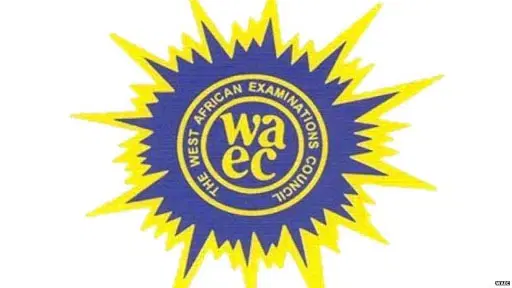Many Nigerians have raised the alarm at the rate at which counterfeit products have saturated the markets in recent times.
As consumers shop for the festivities, the merchants of death, who clone and fake genuine products for inordinate gains, have taken over the shelves of trusted shopping malls and local stores, putting unsuspecting consumers at risk.
Last Sunday, social media was awash when an X user cautioned Christmas shoppers to be wary of a particular brand of stir fry sauce, which had over 11 variations.
The sauce, which is said to be made in China, originally known as Amoy, had been faked to Amoy’s, Amqy, Amuy, Amiy, Amoys, Anoy, and several other substandard variations with different flavours and packaging.
On that thread, several other Nigerians identified how the brand of wine, Four Cousins, had been faked into ‘Four Brothers’, ‘Nice Brothers’, and many others. The popular Eva fruit wine has also been faked into three other variants.
The Pepsi-Cola brand, Pepsi, has been faked to Popsi. Popular toothpaste brand, Close Up, has a parody variant, Open Up, with the same brand logo and catchphrase.
Stapes like rice, palm oil and vegetable oil are not spared as several consumers complain that several substandard versions have now flooded the market.
A Lagos-based mother-of-two, Mrs Adebisi Sobowale, said she was shocked when she opened a bottle of a popular brand of palm oil and saw a whitish substance on top.
When used to cook, she said she perceived a foul smell and a foamy concentration that settled on top of the food being prepared.
“The taste is not like palm oil. It tastes like paw-paw mixed with palm oil or something like that. I had to throw my big pot of ogbono soup away because of the bad oil,” she lamented.
Another woman, who runs a catering brand, but did not want her name in print, said even popular rice brands had been taken over by counterfeiters.
She said, “I now double-check any product I buy because one cannot be too careful. We see a lot of mess every day in this business but there is nothing we can do about it.
“That was how I bought two 50 litres kegs of bad vegetable oil. It was made with pig fat, I later learnt after my investigation. It has got so bad.”
Another Lagos resident and a father of two, Sola Simon, said after his shopping, he noticed that he had bought some fake soaps and toiletries.
The packaging of the soaps was different. I went online to check and found out that the one I got was made in Ivory Coast or so, but the brand is based in Nigeria. The one I bought had NAFDAC number of some sort, but I know that these things are cloned,” he added.
His wife, Peju, said she bought a bottle of a popular beverage in traffic and on tasting it knew that it was fake.
She stated, “I have tasted a lot of Coke to know a fake one when I taste it. The gas was too much. It was too sugary and the cork was not well covered. I just knew something was wrong.
“Even the chocolate I used to get for my children has also been faked because I noticed that whenever they take them to school, they come down with diarrhoea.”
Many Nigerians also complained that the potency of some of their popular over-the-counter medications had reduced, alleging that most of them might have been compromised.
A registered nurse, who identified herself only as Mrs Mary, told one of our correspondents that she noticed that a batch of syringes brought to her department was fake.
“I raised the alarm and it was recalled. The supplier was involved and he was saying what we did not understand. We have taken him to the authorities. We don’t want to make a lot of noise so we don’t alarm the public, but the situation is getting worse by the day, and the health sector is not spared,” she stated.
The nurse also asked Nigerians to always check the packs of the medications they buy for things as tiny as a wrong inscription, packaging, or error of any kind to identify the oddities.
Fake products have become a national problem and have continued to generate concerns as some desperate Nigerians are profiting from the sale of potentially dangerous products.
A report by the ‘Organised Crime: West African Response to Trafficking,’ a project of the Economic Community of West African States, said illicit and counterfeit medical products from China and India were taking over the drug markets in Nigeria, Ghana, Benin Republic, Togo, Guinea and other countries in the sub-region.
The OCWAR-T observed that the illegal drugs were often shipped from Guangzhou in China and cleared through the ports in Apapa, Tema, Cotonou, and Conakry, using intermediaries.
Experts have also noted that Nigeria’s healthcare system is under renewed attack due to the growing prevalence of fake and substandard products.
They identify weak regulations and enforcement as reasons for why the menace has thrived for so long.
The experts, however, called on the government at all levels to urgently reinvigorate strategies to protect the people from the scourge of counterfeit products.
The World Health Organisation has continued to reiterate that substandard and falsified medical products may cause harm to patients and fail to treat the diseases for which they are intended.
They lead to a loss of confidence in medicines, healthcare providers, and health systems.
The National Agency for Food and Drug Administration and Control revealed that counterfeit versions of Seaman Schnapps, Hennessey, Four Cousins, Carlo Rossi, Jenney, Chelsea London Dry Gin, Schnapp Dry Gin, McDowells, Black Labels, Gordons, Martell, Campari, Smirnoff Ice, Eva non-alcoholic drink, Evra non-alcoholic drink, and Cartel are among products intercepted in Eziukwu Market (Cemetery Market) Aba, Abia State.
The agency also said there was a date revalidation for expired products like Peak milk, several brands of powdered milk, ketchup, yogurt, Coca-Cola products, and packaging of fake and substandard products, which were later sold to unsuspecting members of the public for consumption.
The Director-General of NAFDAC, Prof Mojisola Adeyeye, told Sunday PUNCH that the activities of the counterfeiters in the Aba market had been going on for a long time as they operated like a cartel and threatened anyone who dared to challenge them.
She stated, “Because of the extensive operation, the agency raided over 240 shops-turned-factories where the harmful products were being produced and marketed.
“The shops-turned factories are very filthy, using water from very unhygienic sources, harmful chemicals, saccharin, colouring, dirty recycled bottles, and cloned packaging materials of other brands.
“The adulteration of alcoholic beverages by criminal elements in the country is done by mixing cheaper sources of sugar and starch besides grapes or fruit, among other harmful chemicals unsuitable for human consumption.
The NAFDAC DG warned that consuming adulterated alcohol could cause nausea and vomiting, abdominal pain, drowsiness, and dizziness, blue-tinged or pale skin, irregular or slow breathing, low body temperature, unconsciousness, or passing out.
She said it could also lead to kidney and liver failure, or even death.
Adeyeye stated, “Methanol, a substance which can be used in fake vodka, may cause permanent blindness. The WHO in their Global Status Report on Alcohol and Health estimated that more than three million people die all over the world as a result of alcohol poisoning.
Advertisement





